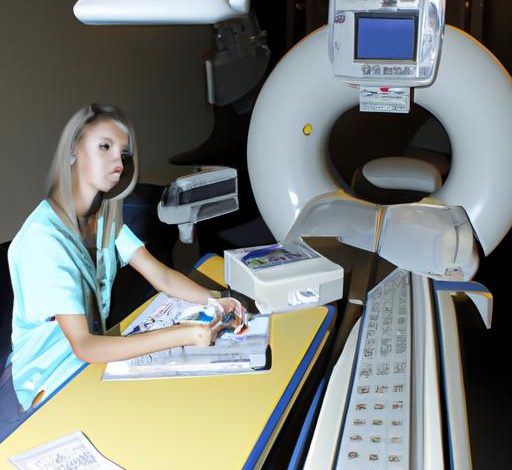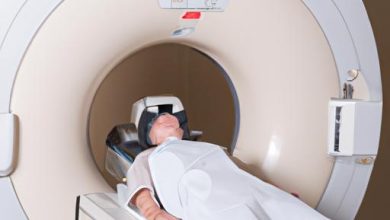How Long Does It Take to Become a Radiology Tech?

Radiology technicians play a crucial role in the healthcare industry, utilizing advanced imaging technology to help diagnose medical conditions and save lives. Have you ever wondered about the journey to becoming a radiology tech? Let’s dive into the intricate world of radiology and explore the path to this rewarding career.
Becoming a radiology tech is not just about taking X-rays; it’s about making a difference in people’s lives by providing accurate and timely diagnostic images. The importance of radiology technicians cannot be overstated, as they are essential members of the healthcare team, working closely with radiologists to ensure accurate diagnoses and patient care.
To embark on this fulfilling career path, individuals must undergo specialized training and education to acquire the necessary skills and knowledge. From learning about radiation physics to mastering imaging techniques, the training and education required for radiology technicians are comprehensive and rigorous. Are you ready to take the first step towards a rewarding career in radiology technology? Let’s explore the journey together.
Education and Training Requirements
Educational Background Needed for Radiology Techs
Becoming a radiology technician requires a solid educational foundation in science and healthcare. Individuals pursuing this career path typically need a high school diploma or equivalent to enroll in a radiology tech program. Courses in biology, anatomy, and physics can provide a strong basis for understanding the complexities of medical imaging.
Accredited Programs and Institutions
When considering a career in radiology technology, it is crucial to choose an accredited program from reputable institutions. Accreditation ensures that the program meets high standards of education and training, preparing students for successful careers in the field. Look for programs recognized by accrediting bodies such as the Joint Review Committee on Education in Radiologic Technology (JRCERT) to ensure quality education and training.
Overview of Coursework and Hands-On Training
The journey to becoming a radiology tech involves a blend of classroom learning and hands-on training. Courses in radiographic procedures, patient care, and medical ethics provide students with the knowledge and skills needed to excel in the field. Additionally, hands-on training in clinical settings allows students to apply their learning in real-world scenarios, preparing them for the demands of the job. By combining theoretical knowledge with practical experience, students can develop the expertise and confidence required to succeed as radiology technicians.
Certification and Licensing Process
Importance of Certification and Licensing for Radiology Technicians
Becoming a certified and licensed radiology technician is crucial for ensuring competency and quality patient care. Certification demonstrates that an individual has met the standard requirements and possesses the necessary skills to perform the duties of a radiology tech effectively. Licensing, on the other hand, is a legal requirement in many states and is essential for practicing in a healthcare setting. By obtaining certification and licensing, radiology technicians uphold professionalism and accountability in their practice, providing peace of mind to both patients and employers.
Steps Involved in Obtaining Certification and Licensing
The process of obtaining certification and licensing as a radiology technician typically involves completing an accredited educational program, meeting clinical experience requirements, and passing a certification exam. Candidates must also adhere to the ethical standards set forth by professional organizations such as the American Registry of Radiologic Technologists (ARRT). Additionally, some states may require applicants to undergo background checks and submit to fingerprinting as part of the licensing process. By following these steps diligently, aspiring radiology techs can demonstrate their commitment to excellence and patient care.
Overview of the ARRT Certification Exam
The ARRT certification exam is a comprehensive assessment that evaluates a candidate’s knowledge and skills in the field of radiology technology. Covering topics such as patient care, radiation protection, image production, and procedures, the exam tests candidates on their ability to perform essential job functions competently. Passing the ARRT certification exam is a significant milestone in the journey to becoming a certified radiology technician and is a testament to one’s dedication to the profession. Prepare diligently, and success will be within reach on the path to a fulfilling career in radiology technology.
Clinical Experience and Internship
Importance of Clinical Experience and Internship for Radiology Techs
Clinical experience and internships play a vital role in shaping competent and skilled radiology technicians. It provides aspiring radiology techs with invaluable hands-on experience in a real-world healthcare setting. By working alongside experienced professionals, students gain practical knowledge and skills that are essential for their future careers.
Overview of the Typical Duration of Clinical Experience Required
The duration of clinical experience required for radiology technicians can vary depending on the program and institution. Typically, students are required to complete a certain number of hours of clinical training to meet the certification and licensing requirements. This hands-on experience allows students to apply their theoretical knowledge in a practical setting, honing their skills and preparing them for the demands of the job.
Benefits of Hands-on Training in a Clinical Setting
Hands-on training in a clinical setting offers numerous benefits for radiology techs. It allows students to familiarize themselves with the equipment and technology used in radiology, ensuring they are proficient in operating and maintaining these essential tools. Additionally, clinical experience provides students with the opportunity to interact with patients, developing their communication skills and bedside manner. Overall, clinical experience and internships are crucial components of a radiology technician’s education, helping them become competent and confident professionals in their field.
Time Frame to Become a Radiology Tech
Average Time to Complete Education and Training Requirements
Becoming a radiology technician requires dedication and commitment to completing the necessary education and training requirements. On average, individuals pursuing a career in radiology technology can expect to spend around two to four years completing their education and training. This timeframe includes earning an associate’s degree or a certificate in radiologic technology from an accredited program, as well as gaining hands-on clinical experience.
Factors Affecting the Length of Time to Become a Radiology Tech
Several factors can influence the length of time it takes to become a radiology tech. These factors may include the type of program chosen (such as a full-time versus part-time program), the individual’s prior education and experience, and the specific requirements of the certification and licensing process in their state. Additionally, the availability of clinical placements and internship opportunities can also impact the overall timeline for becoming a certified radiology technician.
Overview of Accelerated Programs and Options for Expediting the Process
For individuals looking to fast-track their career in radiology technology, accelerated programs may provide an efficient pathway to becoming a radiology tech in a shorter timeframe. These programs often offer intensive coursework and clinical experiences, allowing students to complete their education and training requirements more quickly. With careful planning and dedication, aspiring radiology technicians can explore accelerated program options to expedite their journey towards a fulfilling career in radiologic technology.
Conclusion
In conclusion, the path to becoming a radiology technician is an exciting and rewarding journey that requires dedication, hard work, and a passion for helping others. By completing the necessary education, training, certification, and clinical experience, you can embark on a fulfilling career in the field of radiology technology.
If you’re considering a career as a radiology tech, remember that the time it takes to become fully qualified can vary depending on your individual circumstances and the program you choose. However, with determination and perseverance, you can achieve your goal of becoming a skilled and knowledgeable radiology technician.
equipment.giadinh.tv is here to support you on your journey towards becoming a radiology tech. With our expert guidance and resources, you can navigate the path to success in this dynamic and essential healthcare profession. Embrace the challenges and opportunities that come your way, and take the first step towards a fulfilling career in radiology technology.
Conclusion: So above is the How Long Does It Take to Become a Radiology Tech? article. Hopefully with this article you can help you in life, always follow and read our good articles on the website: equipment.giadinh.tv

